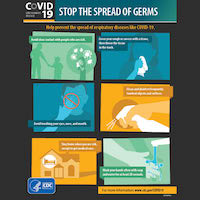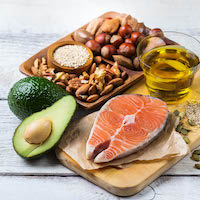Microbiome and Nutrition
The complex community of bacteria, yeasts and viruses living in our intestines, collectively known as the gut microbiome, is shaped, in part, by what we eat. Genetics, environment, and other factors also influence an individual’s microbial community. Research at the NRI investigates these complex relationships and their impact on disease risk. We use animal models and bioinformatics to study the associations between nutritional metabolites, gut microbiome, and health. What happens in the gut doesn’t stay in the gut. Your microbiome can play a role in cardiovascular disease, obesity and diabetes, and even cancer. Our team envisions a future where analysis of your microbiome can determine disease risk, and medical foods can be prescribed to treat and prevent disease by regulating the microbiome.
Publications
Microbiome and Nutrition Publications
2020
Population studies of TMAO and its precursors may help elucidate mechanisms. Meyer K
2019
Association of dietary patterns with the gut microbiota in older, community-dwelling men. Meyer K
2018
Meta-analysis of human genome-microbiome association studies: the MiBioGen consortium initiative. Meyer K
Human microbiota, blood group antigens, and disease. Sumner S
2017
Trimethylamine N-Oxide, the Microbiome, and Heart and Kidney Disease. Zeisel S
2016
Diet and Gut Microbial Function in Metabolic and Cardiovascular Disease Risk. Meyer K
Antibiotic-mediated gut microbiome perturbation accelerates development of type 1 diabetes in mice. Sumner S
Related News
Asparagus Quiche
Recipe by Chef Megan Lambert, Senior Instructor at Johnson & Wales University, Charlotte, NC. Asparagus Quiche Yield: 8 servings Springtime means beautiful fresh asparagus in the garden or at the farmer’s market. There is just no comparison between fresh spring...
Li Uses Metabolomics to Study Diabetes
Yuanyuan Li, PhD, a member of the Sumner Lab at the UNC Nutrition Research Institute (NRI), has been published in Archives of Toxicology with her manuscript titled “Exposure to inorganic arsenic and its methylated metabolites alters metabolomics profiles in INS-1...
Managing in an Uncertain Time
As the novel coronavirus COVID-19 affects all our lives, we at the Nutrition Research Institute are taking every measure to flatten the curve of infection by strictly following guidelines set down by the University, our local jurisdictions, and the state. According to...
Are All Fats Bad?
Following up on the popular Appetite for Life presentation by Cecilia Kwan, PhD, RD, in February, we present the first in a series of articles on popular myths about whether certain foods are good or bad to eat. For a long time in recent decades, dietary fat has been...
COVID-19 UPDATE: Appetite For Life Moves to Online Format
We miss connecting with our community at Appetite for Life events, so while we're all working to flatten the curve, we’re bringing the events to you at home. Our Facebook Watch Parties feature recorded past Appetite for Life programs. Watch along with us at the...
COVID-19 UPDATE: NRI BUILDING CLOSED TO THE PUBLIC.
BUILDING ACCESS The University of North Carolina building at 500 Laureate Way is CLOSED to the public until further notice. Access to the building is limited to employees via security badge only. EVENTS All live events sponsored by the NRI are suspended for the time...





